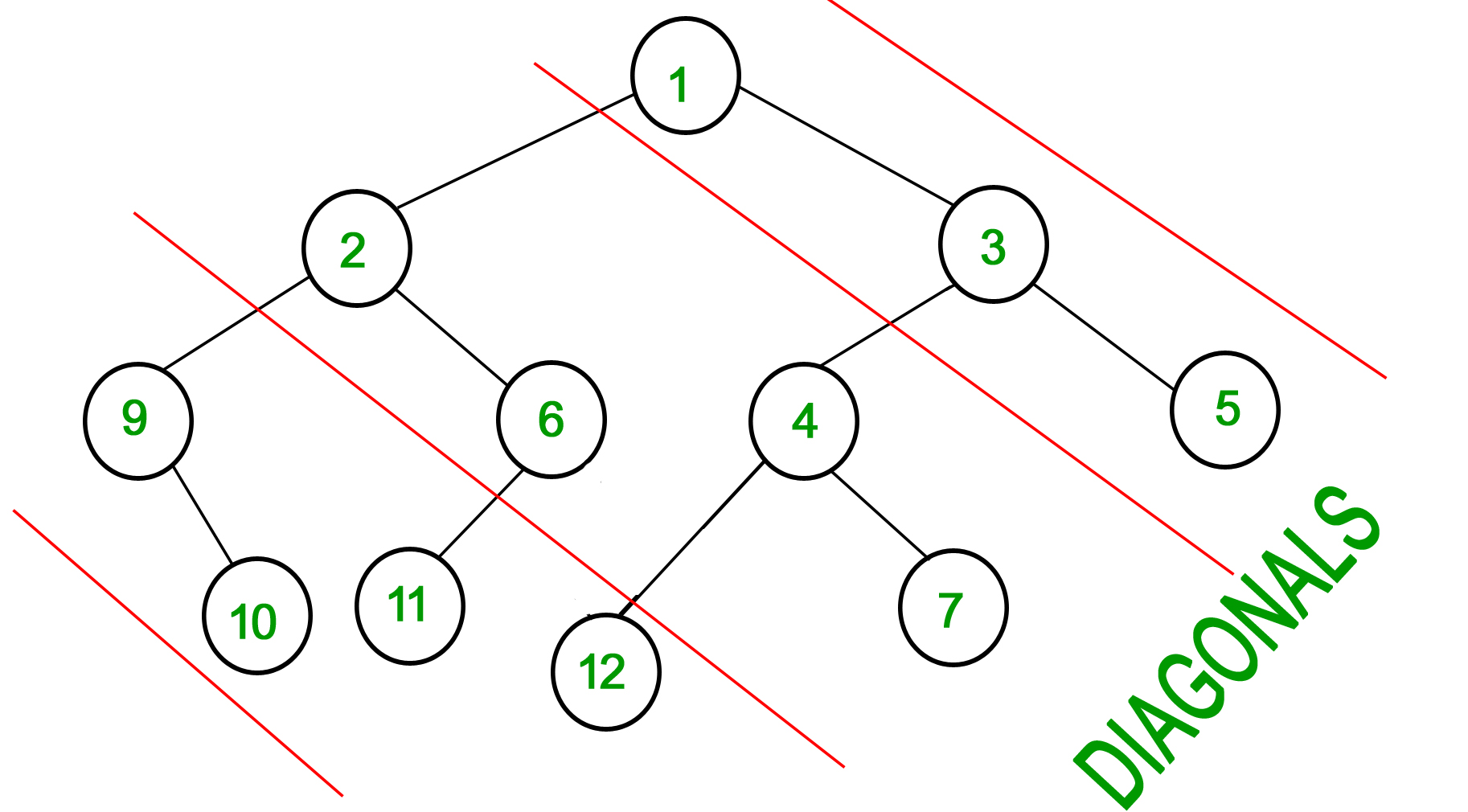diagonal sum in Binary Tree Problem Solution -
Problem Statement-
Consider Red lines of slope -1 passing between nodes (in following diagram). The diagonal sum in a binary tree is the sum of all node’s data lying between these lines. Given a Binary Tree of size N, print all diagonal sums.
For the following input tree, output should be 9, 19, 42.
9 is sum of 1, 3 and 5.
19 is sum of 2, 6, 4 and 7.
42 is sum of 9, 10, 11 and 12.
Example 1:
Input: 4 / \ 1 3 / 3 Output: 7 4
Example 2:
Input: 10 / \ 8 2 / \ / 3 5 2 Output: 12 15 3
Your Task:
You don't need to take input. Just complete the function diagonalSum() that takes root node of the tree as parameter and returns an array containing the diagonal sums for every diagonal present in the tree with slope -1.
Expected Time Complexity: O(N).
Expected Auxiliary Space: O(N).
Constraints:
1<=Number of nodes<=105
Note: The Input/Ouput format and Example given are used for system's internal purpose, and should be used by a user for Expected Output only. As it is a function problem, hence a user should not read any input from stdin/console. The task is to complete the function specified, and not to write the full code.
Problem Credit - GeeksForGeeks (This Problem is taken From geeks for geeks website).
Recommended: Please try your approach before moving on to the solution.
Let's Jump To my Solution now-
Fucntion Descreption ->
I have written a function that returns the sum of diagonal if I pass the current root, map(for storing diagonal sum till now ), and diagonal number to this function parameter. This is a magical function, isn't it 😆😆 XD.
Think like that -
I don't know the solution but if somehow i get diagonal sum excluded root node my task will be minimized and i will add only root node to previous sum.


Comments
Post a Comment